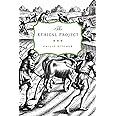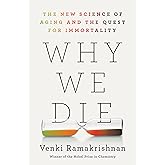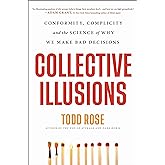
Enjoy fast, free delivery, exclusive deals, and award-winning movies & TV shows with Prime
Try Prime
and start saving today with fast, free delivery
Amazon Prime includes:
Fast, FREE Delivery is available to Prime members. To join, select "Try Amazon Prime and start saving today with Fast, FREE Delivery" below the Add to Cart button.
Amazon Prime members enjoy:- Cardmembers earn 5% Back at Amazon.com with a Prime Credit Card.
- Unlimited Free Two-Day Delivery
- Streaming of thousands of movies and TV shows with limited ads on Prime Video.
- A Kindle book to borrow for free each month - with no due dates
- Listen to over 2 million songs and hundreds of playlists
- Unlimited photo storage with anywhere access
Important: Your credit card will NOT be charged when you start your free trial or if you cancel during the trial period. If you're happy with Amazon Prime, do nothing. At the end of the free trial, your membership will automatically upgrade to a monthly membership.
Buy new:
-38% $22.31$22.31
Ships from: Amazon.com Sold by: Amazon.com
Save with Used - Very Good
$17.99$17.99
Ships from: Amazon Sold by: becca's books & more

Download the free Kindle app and start reading Kindle books instantly on your smartphone, tablet, or computer - no Kindle device required.
Read instantly on your browser with Kindle for Web.
Using your mobile phone camera - scan the code below and download the Kindle app.

OK
Moral Origins: The Evolution of Virtue, Altruism, and Shame Hardcover – May 1, 2012
Purchase options and add-ons
Tracing the development of altruism and group social control over 6 million years, Boehm argues that our moral sense is a sophisticated defense mechanism that enables individuals to survive and thrive in groups. One of the biggest risks of group living is the possibility of being punished for our misdeeds by those around us. Bullies, thieves, free-riders, and especially psychopaths -- those who make it difficult for others to go about their lives -- are the most likely to suffer this fate. Getting by requires getting along, and this social type of selection, Boehm shows, singles out altruists for survival. This selection pressure has been unique in shaping human nature, and it bred the first stirrings of conscience in the human species. Ultimately, it led to the fully developed sense of virtue and shame that we know today.A groundbreaking exploration of the evolution of human generosity and cooperation, Moral Origins offers profound insight into humanity's moral past -- and how it might shape our moral future.
- Print length432 pages
- LanguageEnglish
- PublisherBasic Books
- Publication dateMay 1, 2012
- Grade level11 and up
- Reading age13 years and up
- Dimensions6.55 x 1.5 x 9.55 inches
- ISBN-100465020488
- ISBN-13978-0465020485
The Amazon Book Review
Book recommendations, author interviews, editors' picks, and more. Read it now.
Frequently bought together

Customers who viewed this item also viewed
Editorial Reviews
Review
"[An] engrossing work.... Boehm does a remarkable job of extending previous work and incorporating a historical approach."―Publishers Weekly, starred review
"What sets Boehm's approach apart is his effort 'to make the natural history of moral origins more historical'. In so doing he provides a new and coherent map of the evolution of morality.... It is a complex story..., but Boehm's experience doing fieldwork with humans and wild chimps makes him a wonderfully knowledgeable guide. And some of his ideas are truly revolutionary."―New Scientist
"How did evolution produce a species that blushes? To explain the uniquely human moral sense, Boehm teases a provocative neo-Darwinian theory out of cutting-edge archaeological, anthropological, and psychological research.... Those looking for a daring new application of empirical science will find it here."―Booklist
"[A] provocative scientific contribution...to the millennia-long discussion about the nature of morality.... Thinkers everywhere will be forced--as they are in many arenas--to consider biology in realms that once seemed strictly matters of the heart and soul."―Michael Shermer, Wall Street Journal
"One rarely finds such a fully Darwinian, scientifically sound, and wisely accessible book for both professionals and lay audiences as Boehm's study of moral origins; it is far superior to any previous attempts to discuss the subject."―Choice
"Astronomers have the Hubble telescope to look back through time, and social scientists have Chris Boehm. Boehm's monumental accomplishment is to give us the most careful and compelling portrait ever created of how our ancestors lived, from three hundred thousand generations ago to five hundred generations ago. Boehm's work is vital for understanding why we are so tribal, punitive, gossipy, religious, and cooperative today."―Jonathan Haidt, professor of psychology, University of Virginia, and author of The Righteous Mind
"Few scientists have thought longer and harder about the origins of morality than Christopher Boehm, who brings to the issue a wealth of experience studying both humans and other animals. His thesis that our species has taken moral evolution into its own hands is new and refreshing."―Frans de Waal, author of The Age of Empathy
"Moral Origins is an exciting study on the evolution of human morality that is appropriate for scientific researchers and also of interest for the general public as well. Christopher Boehm brilliantly ties fundamental aspects of human cooperation such as altruism, free-riding, and bullying to both primitive and advanced societies. This book is a must for all who are interested in how human morality evolved and functions."―Ernst Fehr, professor of economics, University of Zurich
"In Moral Origins, Christopher Boehm uses his vast knowledge of the literature on primates and human hunter-gather populations to address the issue of the origins of human morality. It is a must-read for any social scientist, primatologist, or humanist studying human morality. Equally important, it is beautifully written in an easy and graceful style. Certainly the most informed and best work written by an anthropologist on this set of issues, Moral Origins is a book that I would recommend to any thoughtful person."―Jonathan Turner, distinguished professor of sociology, University of California, Riverside
About the Author
He has lectured widely to groups as diverse as the Human Behavior and Evolution Society, the Chicago Academy of Sciences, the Sante Fe Institute, the Los Angeles and Cincinnati Zoos, and the Naval War College. Boehm is the author of many scientific articles and several previous books, including Hierarchy in the Forest (Harvard). He divides his time between Los Angeles and Santa Fe.
Product details
- Publisher : Basic Books; 1st edition (May 1, 2012)
- Language : English
- Hardcover : 432 pages
- ISBN-10 : 0465020488
- ISBN-13 : 978-0465020485
- Reading age : 13 years and up
- Grade level : 11 and up
- Item Weight : 1.8 pounds
- Dimensions : 6.55 x 1.5 x 9.55 inches
- Best Sellers Rank: #714,669 in Books (See Top 100 in Books)
- #847 in General Anthropology
- #1,725 in Popular Social Psychology & Interactions
- #2,503 in Philosophy of Ethics & Morality
- Customer Reviews:
About the author

To visit author's home page on the web:
The URL is: christopher-boehm.com
This website has pictures of field work, art work, and publications.
Customer reviews
Customer Reviews, including Product Star Ratings help customers to learn more about the product and decide whether it is the right product for them.
To calculate the overall star rating and percentage breakdown by star, we don’t use a simple average. Instead, our system considers things like how recent a review is and if the reviewer bought the item on Amazon. It also analyzed reviews to verify trustworthiness.
Learn more how customers reviews work on Amazon-
Top reviews
Top reviews from the United States
There was a problem filtering reviews right now. Please try again later.
Boehm argues (convincingly) that it was this early emphasis on social control that gave us our conscience which, when it was fully developed, led us to identify with the group's norms emotionally.
(Chimpanzees have been observed to gang up and drive off or kill alpha male who've become a danger - but this only involves small groups of temporarily united subordinates who hope to seize the alpha crown for themselves. Human tribes were strongly egalitarian as far as adult males were concerned.)
He offers something of solution to the problem of whether we are innately hierarchical or not. There is a (male) tendency to seek status and domination but that is countered by resentment from subordinates who, in the past at any rate, ganged up to enforce egalitarianism.
I found his final chapter disappointing (“Epilogue: Humanity's moral future”]. It dwelt a lot on the threats of war and violence that we now face, and the hope that some global sense of sympathy and empathy might provide a way forward. This struck me as wishful thinking without the basis in evidence that he worked hard to assemble for his theory of the evolution of altruism. Also during the course of his book there had been almost no mention of inter-group violence as a formative force; it was all about intra-group violence and the violent and harsh suppression of bullies and free riders, in ways that would have affected the gene pool. Nothing much about intra-group violence and how that might have militated against culling aggressive men (and rewarding self-sacrifice).
The fact that he ignores inter-group conflict in the body of his work may explain his light touch approach to group selection. He doesn't dismiss it out of hand but he doesn't devote much space to it.
Boehm writes very well, making reading his work enjoyable.
This is a must-read book for anyone interested in human evolution. For a different view, click the link below, click on the author, John Wylie (twice) and check out the "about page" on the blog on the right side of my personal page.
Diagnosing and Treating Mental Illness, A Guide for Physicians, Interns, Nurses, Patients and Their Families, Updated Edition
Top reviews from other countries
Diese Frage beantwortet Boehm umfassend, und zwar ausgehend von den frühen Jäger/Sammler-Gesellschaften. Solche "ursprüngliche" Stammesgesellschaften gibt es weltweit noch etwa 300, davon noch etwa 150 in einem "unverfälschten", d.h. noch nicht durch intensive Kontakte mit Industriegesellschaften beeinflusste. Diese noch "unentwickelten", d.h. noch nicht durch Ackerbau/Viehzucht, Zivilisation und Industrie veränderten Gesellschaften zeigen, wie alle unsere Homo-Sapiens-Vorfahren während Tausenden von Generationen gelebt haben.
Während wenigstens 150'000 Jahren haben sich Mechanismen und Verhaltensmuster in unseren Genen und Gebräuchen abgebildet, die auf das Leben als jagende und sammelnde Nomaden, ohne Hierachie, ohne Besitz und Eigentum zugeschnitten sind. Diese Verhaltensmuster wurden auch durch die knapp 10'000 Jahre "Zivilisation" seit der Erfindung von Ackerbau, Viehzucht und Schrift nur übertüncht, aber nicht grundlegend geändert. Sie wirken im unbewussten Hintergrund noch beinahe genauso stark, wie bei unseren Vorfahren - und unseren noch "ursprünglich" lebenden Mitmenschen im Busch, Dschungel und Steppen.
Für mich brachte die Lektüre eine überraschend aktuelle Einsicht - zum Thema NSA, CIA und andere Geheimdienste. Es hat mich immer etwas verblüfft, dass diese Geheimorganisationen offenbar keinerlei Hemmungen haben, mit ihren entsprechenden ausländischen Diensten zu kooperieren, aber sich mit Händen und Füssen wehren, wenn die eigenen Bürger gerne wissen möchten, was eigentlich läuft. Ebenso ist die sichtbare Abneigung aller Regierungen, der Deutschen genauso wie der Schweizerischen, gegen die NSA-Ausspähungen wirklich energisch und aktiv vorzugehen. Es scheint ja, als ob die Regierungen gar nichts gegen das Ausspionieren ihrer eigenen Bürger durch die NSA hat.
Boehm bringt indirekt die Lösung dieses Rätsels: Die regierenden Personen, die Machtfiguren haben tatsächlich eine tiefsitzende Angst vor dem Bürger! Diese geht auf die Zeiten der Jäger/Sammlergesellschaften zurück. Diese waren, wie Boehm an Beispielen und mit harten Daten zeigt, ausserordentlich egalitär orientiert. Jeder Versuch, sich aufzuspielen, Trittbrett zu fahren, andere zu drangsalieren, nur schon mit den eigenen Fähigkeiten (zB als Jäger) zu prahlen, wird von der eigenen Horde rasch und unerbittlich geahndet. Da wird auch sehr rasch zum ultimativen "Heilmittel" gegriffen und der Abweichler wird eliminiert. Auch wer "bloss" ausgestossen wird, muss damit rechnen, die nächste Woche nicht zu überleben.
Jede Machtfigur, Mutti Merkel genaus wie alle Regierungsmitglieder, die Brüsseler Bürokraten, die Staatshierarchien etc. haben tatsächlich alle Angst vor dem Volk. Mehr Angst vor dem eigenen Volk als vor fremden Kräften. Daher missbrauchen diese Figuren die Geheimdienste und ihr kriminelles Potential gerne und ungehemmt, um das eigene Volk gefügig zu halten, Kritik zu unterdrücken und Rebellen zu eliminieren. Alles Nachwirkungen unserer egalitär geprägten Entwicklungsgeschichte.
Ich empfehle dieses erhellende, fundierte und umfassende Werk jedem, der sich dafür interessiert, wie und warum wir Menschen uns so benehmen, wie wir uns eben benehmen.








